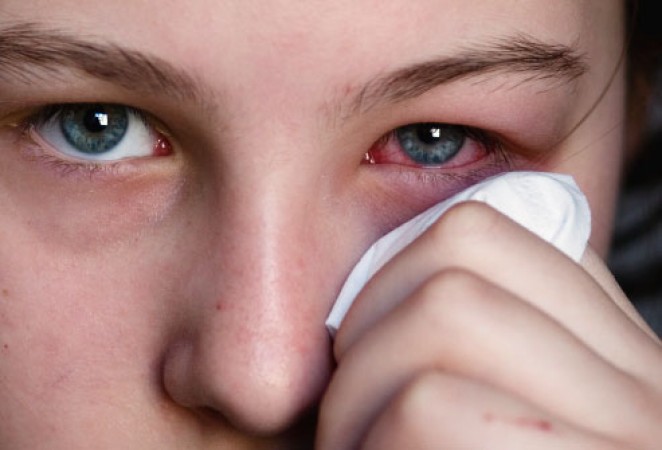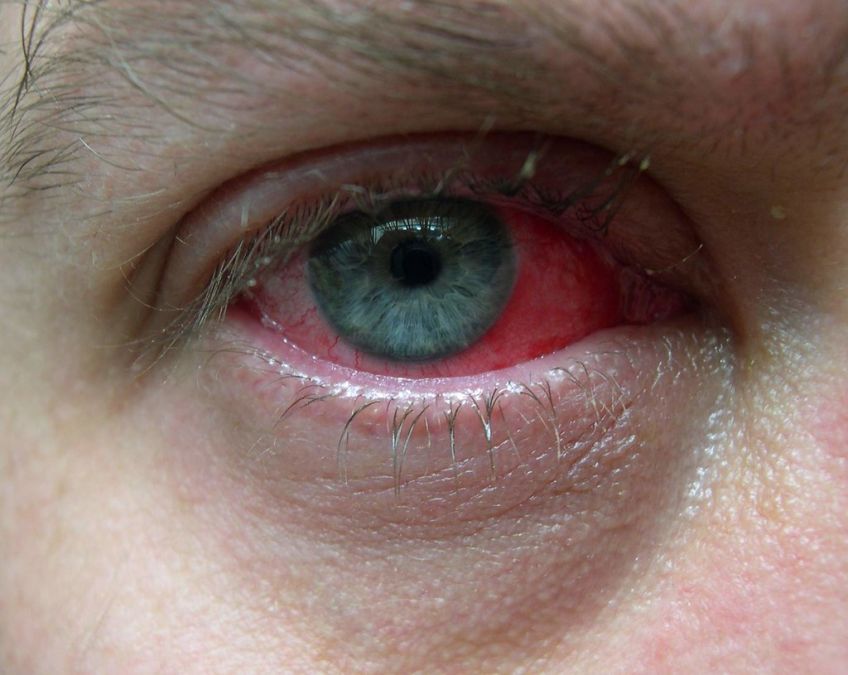
In the bustling urban landscape of Delhi-NCR, a concerning trend is emerging – the rising cases of conjunctivitis, commonly known as eye flu. This highly contagious condition has become a cause for worry among residents, leading to the exploration of preventive measures. One question that has surfaced prominently is whether wearing sunglasses with dark lenses can provide a safeguard against this eye ailment. In this article, we delve into the intricacies of conjunctivitis, its causes, and the potential role of sunglasses in its prevention. So, let's uncover the truth behind the shades!
The vibrant streets of Delhi-NCR are teeming with life, but they also expose its inhabitants to various health challenges. Among these, the recent surge in conjunctivitis cases has sparked concern. As individuals seek effective preventive measures, the idea of using sunglasses with dark lenses has garnered attention. However, before we delve into its potential effectiveness, let's understand the nature of conjunctivitis itself.

Understanding Conjunctivitis
Conjunctivitis, colloquially known as eye flu, is an inflammation of the conjunctiva – the thin, transparent layer covering the front of the eye and inner eyelids. This condition can be caused by viruses, bacteria, allergens, or irritants. Common symptoms include redness, itching, watering, and discharge from the eyes. While conjunctivitis is typically not a severe ailment, its contagious nature requires careful consideration.
Causes and Transmission
Conjunctivitis can spread through direct or indirect contact with infected eye secretions. This can occur through touching the eyes with contaminated hands, sharing personal items like towels or cosmetics, or exposure to contaminated surfaces. Crowded urban environments, such as Delhi-NCR, can facilitate the rapid transmission of the virus.
The Power of Sunglasses: Unveiling the Science
Sunglasses serve a dual purpose – they enhance visual comfort and protect the eyes from harmful ultraviolet (UV) radiation. UV radiation is a known environmental factor that can contribute to various eye conditions, including cataracts and macular degeneration. However, the link between UV radiation and conjunctivitis is not as direct.
Dark Lenses: Separating Fact from Fiction
The idea that sunglasses with dark lenses can prevent conjunctivitis is not firmly established. While these lenses offer protection against bright light and UV radiation, their role in preventing viral or bacterial infections is limited. Conjunctivitis is primarily transmitted through direct contact, making sunglasses a less effective barrier compared to practices like frequent handwashing and avoiding touching the face.
Sunglasses and UV Protection
It's important to note that not all sunglasses are created equal. To maximize UV protection, opt for sunglasses that are labeled as providing 100% UV protection. Dark lenses alone do not guarantee adequate defense against harmful rays. Investing in quality sunglasses can contribute to long-term eye health and reduce the risk of UV-related conditions.
7. Can Sunglasses Prevent Conjunctivitis?
While sunglasses can play a role in maintaining good eye health, their ability to prevent conjunctivitis is indirect at best. The primary mode of prevention should focus on practicing good hygiene, avoiding close contact with infected individuals, and refraining from sharing personal items that may carry the virus.
8. Tips for Choosing the Right Sunglasses
When selecting sunglasses, consider the following tips:
9. Other Protective Measures
In addition to wearing sunglasses, consider the following protective measures:
10. Caring for Your Eyes: Hygiene Matters
Maintaining proper eye hygiene is crucial. Clean your eyes gently with a damp, clean cloth to remove irritants and reduce the risk of infection. Avoid using cosmetics that may come into direct contact with the eyes, especially during an outbreak.
11. The Role of Diet in Eye Health
A balanced diet rich in vitamins and minerals, particularly vitamin A and antioxidants, can contribute to overall eye health. Incorporate foods like carrots, spinach, citrus fruits, and nuts into your diet for their potential benefits to your vision.
12. Debunking Common Myths
Several myths surround the prevention of conjunctivitis. These include:
While the allure of sunglasses with dark lenses as a preventive measure against conjunctivitis is understandable, their efficacy in this context is limited. While they offer valuable UV protection, other preventive practices, such as maintaining good hygiene and avoiding close contact with infected individuals, hold more substantial weight in reducing the risk of conjunctivitis transmission.
Arthritis Relief: Health Experts Reveal How Fenugreek Can Help
What Milk Alternatives Are Healthier? Exploring Your Options
Are Your Shoulders Postured Poorly? Try Out This 2-Minute Workout